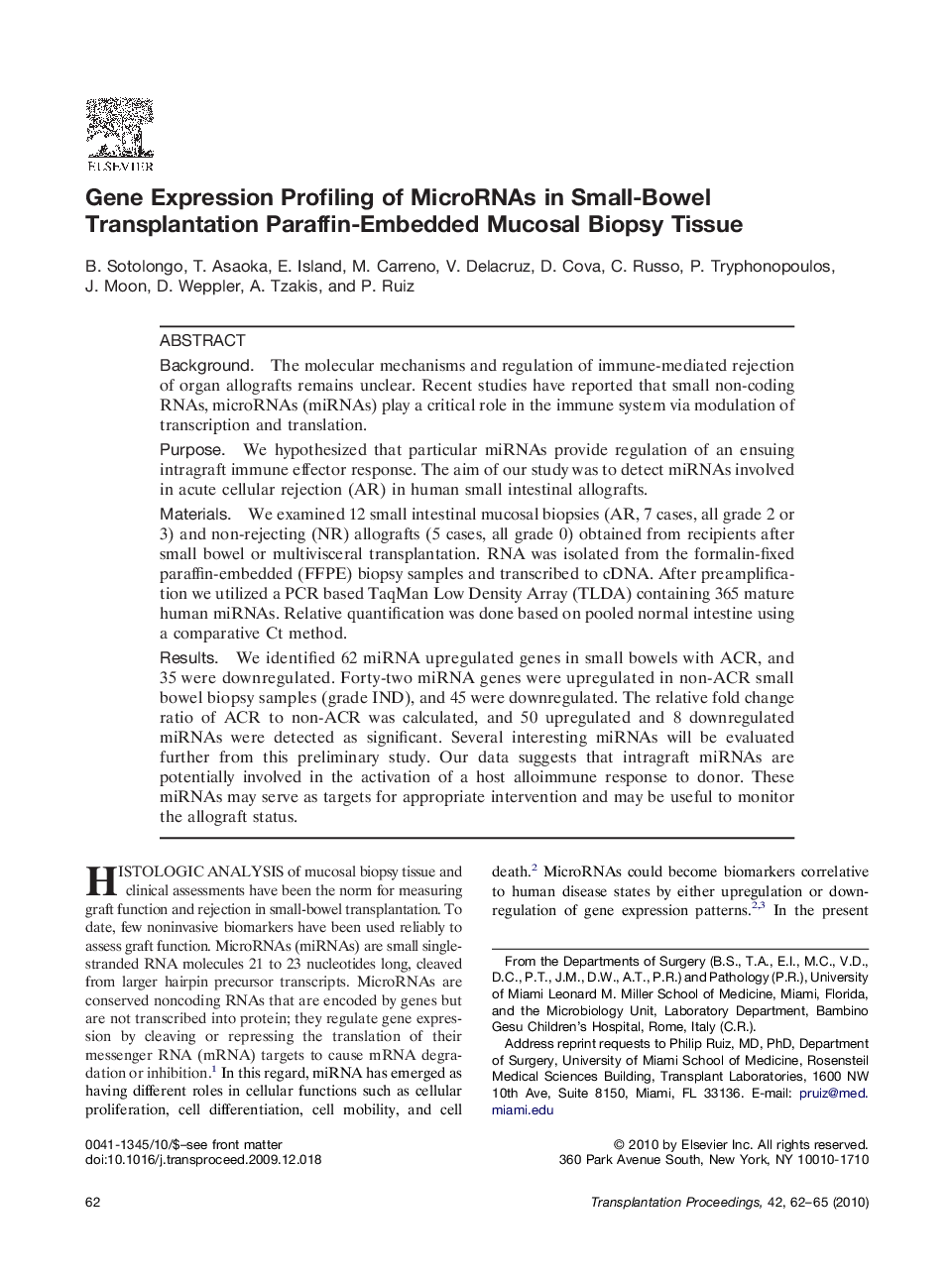| Article ID | Journal | Published Year | Pages | File Type |
|---|---|---|---|---|
| 4260821 | Transplantation Proceedings | 2010 | 4 Pages |
BackgroundThe molecular mechanisms and regulation of immune-mediated rejection of organ allografts remains unclear. Recent studies have reported that small non-coding RNAs, microRNAs (miRNAs) play a critical role in the immune system via modulation of transcription and translation.PurposeWe hypothesized that particular miRNAs provide regulation of an ensuing intragraft immune effector response. The aim of our study was to detect miRNAs involved in acute cellular rejection (AR) in human small intestinal allografts.MaterialsWe examined 12 small intestinal mucosal biopsies (AR, 7 cases, all grade 2 or 3) and non-rejecting (NR) allografts (5 cases, all grade 0) obtained from recipients after small bowel or multivisceral transplantation. RNA was isolated from the formalin-fixed paraffin-embedded (FFPE) biopsy samples and transcribed to cDNA. After preamplification we utilized a PCR based TaqMan Low Density Array (TLDA) containing 365 mature human miRNAs. Relative quantification was done based on pooled normal intestine using a comparative Ct method.ResultsWe identified 62 miRNA upregulated genes in small bowels with ACR, and 35 were downregulated. Forty-two miRNA genes were upregulated in non-ACR small bowel biopsy samples (grade IND), and 45 were downregulated. The relative fold change ratio of ACR to non-ACR was calculated, and 50 upregulated and 8 downregulated miRNAs were detected as significant. Several interesting miRNAs will be evaluated further from this preliminary study. Our data suggests that intragraft miRNAs are potentially involved in the activation of a host alloimmune response to donor. These miRNAs may serve as targets for appropriate intervention and may be useful to monitor the allograft status.
